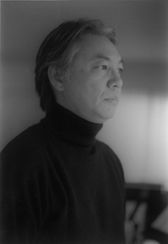 W
WTakanori Arisawa was a Japanese composer and arranger best known for composing the Sailor Moon anime series and Digimon series. He wrote music for the series, including its video games. Born in Tokyo, Arisawa began to learn piano at the age of 20. After graduating from Senzoku Gakuen College, Arisawa started his career in 1980 by composing "Shinjuku Transfer". He worked for the Tokyo Broadcasting System and wrote several TV dramas. From the 1990s until his death, Arisawa began composing for anime series exclusively. His work on Sailor Moon was initially based on pop music, but gradually began to change to those found in classical music. Sailor Moon was successful and Arisawa won several awards for his work. After Sailor Moon, Arisawa composed music for several shows, including the Digimon series, until his death from bladder cancer in 2005.
 W
WShirō Hamaguchi is a Japanese anime composer, arranger and orchestrator. He is best known for composing music to the anime franchises Girls und Panzer, One Piece, and Oh My Goddess! and arranging/orchestrating music in the Final Fantasy series. He frequently collaborates with fellow composers Kohei Tanaka and Akifumi Tada on anime scores.
 W
WMasashi Hamauzu is a Japanese composer, pianist, and lyricist. Hamauzu, who was employed at Square Enix from 1996 to 2010, was best known during that time for his work on the Final Fantasy and SaGa video game series. Born into a musical family in Germany, Hamauzu was raised in Japan. He became interested in music while in kindergarten, and took piano lessons from his parents.
 W
WMamoru Fujisawa , known professionally as Joe Hisaishi , is a Japanese composer and musical director known for over 100 film scores and solo albums dating back to 1981. Hisaishi is also known for his piano scores.
 W
WTsuneo Imahori is a Japanese guitarist and composer.
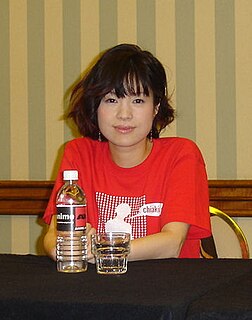 W
WChiaki Ishikawa is a Japanese singer-songwriter. She is also the lead vocalist of Japanese musical duo See-Saw. Many of her songs, both solo and with See-Saw, have been used as theme songs in various anime series. Since 2003, her popularity abroad as part of See-Saw and as a solo artist has risen significantly. She made an appearance at Anime Expo 2007 as a Guest of Honor. She has also performed at Animelo Summer Live in 2006, 2008, 2009, 2010, 2011, and 2012 including collaborations with Chihiro Yonekura in 2008, Angela in 2009 and Minori Chihara in 2012, and being one of the artists in the Animelo Summer Live theme song singles in 2006, 2008, 2009 and 2010. She has also been a guest performer at the C3 anime convention in Hong Kong.
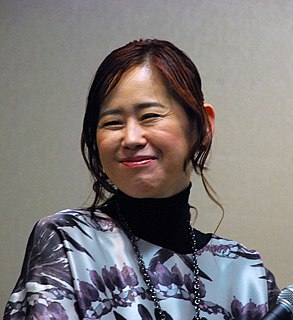 W
WYuki Kajiura is a Japanese musician, composer and record producer. She has provided the music for several popular anime series, such as the final Kimagure Orange Road movie, Noir, .hack//Sign, Aquarian Age, Madlax, My-HiME, My-Otome, Pandora Hearts, Puella Magi Madoka Magica, Fate/Zero, Sword Art Online, Tsubasa: Reservoir Chronicle, Demon Slayer: Kimetsu no Yaiba and the Kara no Kyoukai movies. She also assisted Toshihiko Sahashi with Mobile Suit Gundam SEED and Mobile Suit Gundam SEED Destiny. Kajiura has also composed for video games, including the cutscene music for Xenosaga II and the entire Xenosaga III game soundtrack. She composed the music for NHK's April 2014 morning drama (asadora) Hanako to Anne.
 W
WYoko Kanno is a Japanese composer, arranger and musician best known for her work on the soundtracks of anime films, television series, live-action films, video games, and advertisements. She was born in Sendai, Miyagi Prefecture, Japan. She has written scores for Cowboy Bebop, Darker than Black, Macross Plus, Turn A Gundam, The Vision of Escaflowne, Ghost in the Shell: Stand Alone Complex, Wolf's Rain, Kids on the Slope, Genesis of Aquarion and Terror in Resonance, and has worked with the directors Hirokazu Kore-eda, Yoshiyuki Tomino, Shinichirō Watanabe and Shōji Kawamori. Kanno has also composed music for pop artists Maaya Sakamoto and Kyōko Koizumi. She is also a keyboardist, and is the frontwoman for the Seatbelts, who perform many of Kanno's compositions and soundtracks.
 W
WTatsuya Kato is a Japanese anime composer and arranger. He is known for his works on many anime series, including Fate/kaleid liner Prisma Illya, Free!, and Food Wars: Shokugeki no Soma. He is currently represented by music production company APDREAM.
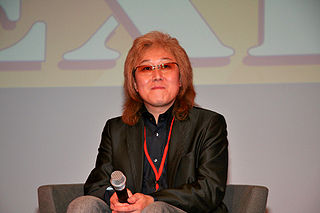 W
WKenji Kawai is a Japanese music composer and arranger. Known as one of the biggest names in the soundtrack world, he has worked on a wide range of mixed media productions, including anime, TV shows, films and video games. Among his credits are Toei's Kamen Rider Heisei Generations Forever, Tsui Hark's Seven Swords and Young Detective Dee: Rise of the Sea Dragon; Wilson Yip's Ip Man; Mamoru Oshii's films The Red Spectacles, StrayDog: Kerberos Panzer Cops, Ghost in the Shell, Mobile Police Patlabor and Avalon; the anime adaptations of Rumiko Takahashi's Ranma ½ and Maison Ikkoku; the live-action adaptation of Gantz and Hideo Nakata's films Ring, Ring 2, Chaos, Dark Water and Kaidan.
 W
WTetsuya Komuro is a Japanese musician, singer-songwriter, composer and record producer. He is recognized as the most successful producer in Japanese music history and introduced dance music to the Japanese mainstream. He was also a former owner of the disco Velfarre located in Roppongi, Tokyo. He is widely regarded as one of the most influential figures in pop throughout the 1990s.
 W
WYuzo Koshiro is a Japanese music composer and president of the game development company Ancient. He is often regarded as one of the most influential innovators in chiptune and video game music, producing music in a number of genres, including various electronic genres, experimental, symphonic, hip hop, jazz, and synth-rock. Koshiro and his sister Ayano also founded the game development company Ancient in 1990.
 W
WJun Maeda is a Japanese writer and co-founder of the visual novel brand Key under Visual Arts. He is considered a pioneer of nakige visual novels, and has mainly contributed as a scenario writer, lyricist, and musical composer for the games the company produces. His style was originally inspired by James Herbert Brennan, and is influenced by Haruki Murakami's novel Hard-Boiled Wonderland and the End of the World.
 W
WKaori Mochida is the lead singer of Japanese pop group Every Little Thing.
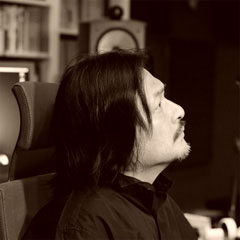 W
WKeiichi Oku is a Japanese keyboardist, composer, and arranger. He was the keyboardist in the Japanese band Spectrum from 1979-1981. In 2009, he won the JASRAC International Award for the background music used in the Ashita no Nadja anime television series from Toei Animation.
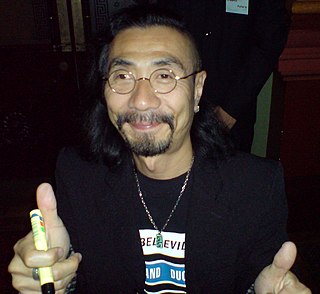 W
WKow Otani is a Japanese music composer. He is best known for creating the soundtracks for the Heisei Gamera trilogy, Godzilla, Mothra and King Ghidorah: Giant Monsters All-Out Attack, Mobile Suit Gundam Wing, and Shadow of the Colossus.
 W
WPlaid are an English electronic music duo composed of Andy Turner and Ed Handley. They were founding members of The Black Dog and used many other names, such as Atypic and Balil, before settling on Plaid. They have collaborated with female singers Mara Carlyle, Nicolette and Björk, and have released records on the labels Clear, Peacefrog, Black Dog Productions, and Warp.
 W
WJohn Powell is an English composer, best known for his scores in motion pictures. He has been based in Los Angeles since 1997 and has composed the scores to over fifty feature films.
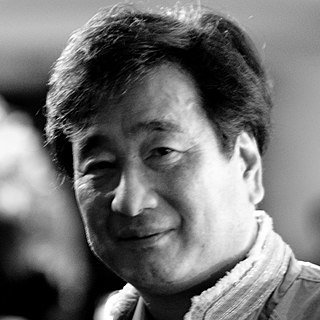 W
WShigeaki Saegusa is a Japanese composer.
 W
WRyuichi Sakamoto is a Japanese composer, singer, songwriter, record producer, activist, and actor who has pursued a diverse range of styles as a solo artist and as a member of Yellow Magic Orchestra (YMO). With his bandmates Haruomi Hosono and Yukihiro Takahashi, Sakamoto influenced and pioneered a number of electronic music genres.
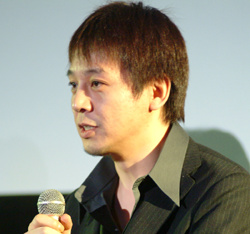 W
WHitoshi Sakimoto is a Japanese video game music composer and arranger. He is best known for scoring Final Fantasy Tactics and Final Fantasy XII, though he has composed soundtracks for over 80 other games. He began playing music and video games in elementary school, and began composing video game music for money by the time he was 16. Sakimoto's professional career began a few years later in 1988 when he started composing music professionally as a freelancer, as well as programming sound drivers for games. Five years and 40 games later, he achieved his first mainstream success with the score to Ogre Battle: The March of the Black Queen. In 1997, he joined Square and composed for his first international success, the score to Final Fantasy Tactics.
 W
WYoko Shimomura is a Japanese composer and pianist, primarily known for her work in video games. Shimomura has worked in the video game industry ever since graduating from the Osaka College of Music in 1988. From then until 1993, she worked for Capcom, where she composed wholly or in part the scores for 16 games, including Final Fight and Street Fighter II: The World Warrior.
 W
WKoichi Sugiyama is a Japanese composer, conductor, and orchestrator. Sugiyama is known for composing the music for the Dragon Quest video game series, along with several other games, anime, film, and television shows. Classically trained, Sugiyama is considered a major inspiration for other Japanese game music composers. He is also a council member of the Japanese Society for Rights of Authors, Composers, and Publishers (JASRAC), board member of the Japan Institute for National Fundamentals, and honorary chairman of the Japanese Backgammon Society. In 2020, he was named a Person of Cultural Merit by the Japanese government.
 W
WSupercell is an 11-member Japanese pop band led by musician and songwriter Ryo, which formed in 2007 as a dōjin music band. The other 10 members are artists and designers who provide illustrations in album booklets and music videos. Supercell started out by making use of the Hatsune Miku Vocaloid singing synthesizer to produce vocals for songs submitted to the Nico Nico Douga video sharing website. The popularity of the songs led the band to release their independent self-titled album Supercell (2008). Supercell later signed to Sony Music Entertainment Japan and had a professional release of their Supercell album in March 2009, which was updated with more songs.
 W
WMasakatsu Takagi is a musician and filmmaker from Kameoka, Kyoto, Japan. He attended Kyoto University of Foreign Studies, graduating with English.
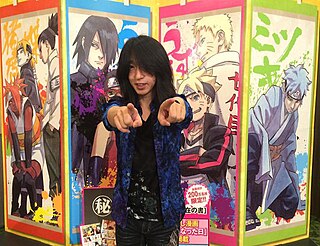 W
WYasuharu Takanashi is a prolific Japanese composer and arranger for anime and video game series. His anime composition credits include Beyblade G-Revolution, Hell Girl, Ikki Tousen, Naruto Shippuden, Fairy Tail, Shiki, and Sailor Moon Crystal. He also composed on four Pretty Cure series: Fresh Pretty Cure!, HeartCatch PreCure!, Suite PreCure, and Smile PreCure!, as well as their related films, some of which were with composer Naoki Sato. Game music compositions include Genji: Dawn of the Samurai, Genji: Days of the Blade and J-Stars Victory VS. He also composed theme music for Pride Fighting Championships and Ultraman Max.
 W
WHidekazu Tanaka is a Japanese composer and arranger best known for his work for anime and video games. He is affiliated with the music production company MONACA.
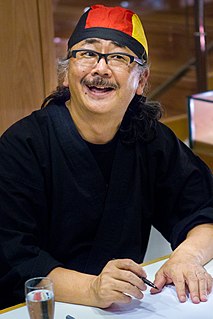 W
WNobuo Uematsu is a Japanese musician and composer, best known for his contributions to the Final Fantasy video game series by Square Enix. A self-taught musician, he began playing the piano at the age of twelve, with English singer-songwriter Elton John as one of his biggest influences. Uematsu joined Square in 1986, where he first met Final Fantasy creator Hironobu Sakaguchi. The two later worked together on many titles at the company, most notably in the Final Fantasy series. After nearly two decades with Square, Uematsu left in 2004 to create his own production company, which included the Dog Ear Records music label. He has since composed music as a freelancer for other games, including ones developed by Square Enix and Sakaguchi's development studio, Mistwalker.
 W
WYang Bang-ean is a Korean composer, arranger, record producer, and pianist. His Japanese name is Kunihiko Ryo.